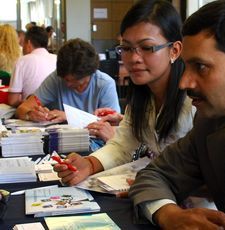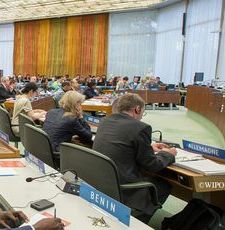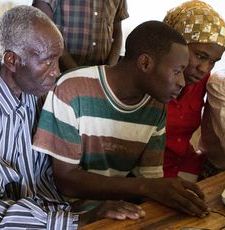ABOUT THE RESOURCE
In 2011-2013 EIFL provided financial support to 34 projects that implemented national and institutional open access (OA) advocacy campaigns to reach out to research communities and OA publishing initiatives.
Through small grants and support from their own institutions, the projects engaged in a wide variety of campaigns and activities, including: holding workshops, creating websites, building institutional OA repositories, creating e-learning courses, and implementing OA publishing platforms.
The case studies resulting from the projects reveal impressive first-time achievements and will help increase the availability of research literature in developing and transition countries.
Learn more about the key achievements for this national OA campaign in Uganda below. You can access the full case study (strategies, tactics and tools, success stories and lessons learnt) by clicking on the download button.
About the project in Uganda
The main goals of the project, implemented in 2012 by the Consortium of Uganda University Libraries (CUUL) - which includes 24 public and private universities and research organizations - were to encourage member institutions to promote the adoption of campus-based, faculty-driven OA policies and to encourage the creation of OA institutional repositories (IRs).
Key Achievements
- At Bishop Stuart University, Busitema University and Uganda Christian University, the University management and Research Committees welcomed the idea of OA repositories.
- OA Policy documents are now being written at Busitema University, Uganda Christian University and Uganda Martyrs University.
- Librarians at Makerere University and Uganda Christian University collected electronic dissertations (which had previously been managed by different departments) to be uploaded to their OA institutional repositories.
- Over 29 graduate and undergraduate students at Makerere University received individual tutoring on OA publishing and many of them have already put this knowledge into practice.
- Makerere University hired an OA repository librarian who now works closely with the e-resources librarian during the e-resources training to promote/market the OA repository.
- Makerere University migrated to a new repository and installed a statistics tool.
- Parliament of Uganda installed DSpace software for their OA repository and trained the members on submission workflows.
- Uganda Martyrs University (UMU) celebrated International OA Week for the first time. The Vice-Chancellor opened OA Week 2012 and suggested that it should be an annual event. All top management members and over 50 faculty members and students, including postgraduates attended interactive workshops. Faculty and postgraduate students who previously only had a vague idea about OA embraced its benefits and some of them have already had their work uploaded into the UMU Research Repository.
SHARE / PRINT









